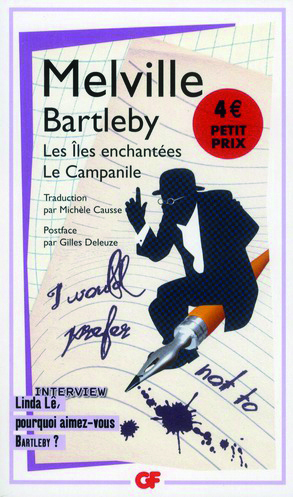Long before the human sciences, literature was already examining societies and the relationships between the individuals who compose them. Immersing yourself in a novel and following the adventures of its characters can therefore be a very useful addition to economics or sociology to understand work. Claudia Senik offers three reading tips to open your analysis.
This article is excerpted from the first issue of the journal Mermoz, “Work: Reshuffling the Cards”.

Bartleby, the eponymous character in Herman Melville’s 1853 short story, is a mythical figure, notably because of the casualness with which he quietly declines any request from his employer: “I would prefer not to“. Why this immense popularity? This is because the comic and absurd nature of the situation enchants the reader, who perhaps also dreams of being able to oppose such an attitude of passive resistance in the face of certain constraints. It is understandable that Bartleby fails to find meaning in an activity that consists only of copying notarial acts. We may also find a bit of Bartleby in the phenomenon of quiet quitting observed in the aftermath of the Covid-19 pandemic. Let us rejoice that in the future, new technologies will eventually do away with the tedious Bartleby-style type of employment. But let’s hope that other exciting jobs come along, as we need to work to escape the nothingness that comes with Bartleby’s radical refusal to work.
“Bartleby” by Herman Melville • Éditions Flammarion • 208 pages • €4.00

Back to Lemberg, a historical novel by Philippe Sands, features Hersch Lauterpacht and Raphael Lemkin, two Jewish jurists, law students between the two wars, at the same university of Lemberg (Lwow, Lviv), under the direction of the same professor, and who will respectively impose in international law the concepts of “crime against humanity” and “genocide”. In the midst of the violence and chaos of war, it is through the development of law that they seek, each on their own, to build the future. Their work is to argue, demonstrate, persuade and campaign tirelessly to establish concepts in international humanitarian law that will protect individuals and groups from extermination. Former classmates, and despite a similar motivation, these two jurists nevertheless found themselves in rivalry, given their disagreement concerning the classification of the crime with which the leaders of the Third Reich were to be charged, and in particular Hans Frank, governor of Poland, at the Nuremberg trials. Higher interests, sacrifices, competition, obstinacy: work in the service of a sacred mission.
“Return to Lemberg” by Philippe Sands • Éditions Albin Michel • 544 pages • €23.00

Back to Lemberg, a historical novel by Philippe Sands, features Hersch Lauterpacht and Raphael Lemkin, two Jewish jurists, law students between the two wars, at the same university of Lemberg (Lwow, Lviv), under the direction of the same professor, and who will respectively impose in international law the concepts of “crime against humanity” and “genocide”. In the midst of the violence and chaos of war, it is through the development of law that they seek, each on their own, to build the future. Their work is to argue, demonstrate, persuade and campaign tirelessly to establish concepts in international humanitarian law that will protect individuals and groups from extermination. Former classmates, and despite a similar motivation, these two jurists nevertheless found themselves in rivalry, given their disagreement concerning the classification of the crime with which the leaders of the Third Reich were to be charged, and in particular Hans Frank, governor of Poland, at the Nuremberg trials. Higher interests, sacrifices, competition, obstinacy: work in the service of a sacred mission.
“Return to Lemberg” by Philippe Sands • Éditions Albin Michel • 544 pages • €23.00



